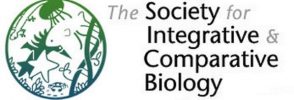Contents
- Message from the President
- Support for the SICB Community during COVID
- SICB 2021 Annual Meeting
- Teaching during the Pandemic: Resources from the SICB Education Council
- Flexibility and Support for Journal Authors
- Telling Stories and Raising Awareness
- Message from the Communications Editor
- Message from the SICB Website Redesign Committee
- Message from the Program Officer
- Message from the Treasurer
- Message from the Secretary (and Secretary-Elect)
- Message from the ICB Editor
- Message from the IOB Editor
- Message from the Broadening Participation Committee
- Message from the Student-Postdoctoral Affairs Committee
- Message from the Education Council
Message from the President
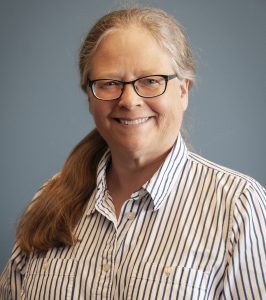
Beth Brainerd, president@SICB.org
In these uncertain times it has been an enormous pleasure to see the superb abstracts submitted for the SICB 2021 virtual meeting. Great science is the hallmark of our annual meetings, and despite everything, this year is no exception!
SICB 2021 will be a 100% virtual meeting, as it is now clear that there will be no possibility for in-person events at our Washington DC venue. Like many of us, I’m sad about not getting to see everyone in person, but I’m also excited about the opportunities offered by a virtual meeting. We have decided to break out of the typical 5-day meeting format and run SICB 2021 over a two month period from January 3rd to February 28th. The goal is to maximize participation by offering flexibility for people attending from time zones worldwide and for all of us who have exceptional family, personal and professional challenges this year.
The first five days of the meeting will be the most intense, with live-streaming symposia, student prize sessions and plenary events. These will all be recorded for on-demand viewing. Contributed oral and poster presentations will be available on demand throughout the two month period and there will be extensive opportunities for “live” (Zoom) interactions as well as text-based chat conversations. SICB has selected Pathable as the virtual meeting platform for SICB 2021 with integrated Zoom for webinars and meetings. No platform has all of the features we would like, but we think Pathable is the best for promoting exciting interactions and networking opportunities across the two months of SICB 2021. In short, SICB 2021 is still your SICB meeting with the same outstanding science, but with more flexibility and opportunities for broader participation.
In other good news, SICB expects to incur no financial penalties for cancelling our in-person meeting. I am deeply grateful to our management company, Burk and Associates Inc., and particularly Brett Burk and Lori Strong, for their work keeping collaborative lines of communication open with the venue and parent company. It is through their excellent work and advice that SICB has been spared from paying the meeting-cancellation penalties that some other societies have incurred.
Support for the SICB Community during COVID
SICB is working hard to support its members through this difficult year. We recognize that the COVID-19 pandemic has negatively impacted many aspects of science, from collaboration to research productivity. We also recognize that the burden of COVID-19 in our community has fallen disproportionately on female and BIPOC scientists. Our existing efforts to support our members are summarized in the list below; please also reach out to SICB leadership if you have additional suggestions.
SICB 2021 Annual Meeting
- 100% Virtual format: our most accessible meeting ever!
- Late-Breaking Abstract Submission Window (Oct 8-Oct 28; now closed) for scientists who experienced research delays or other constraints.
- Reduced Registration Rates: Registration rates for the virtual meeting are lower for all, relative to an in-person meeting, and there are additional reduced rates for members attending from low or lower-middle income countries.
- Waived 3x limit for Mangum Student Support: Mangum support this year for meeting registration fees will not count toward the usual limit of three times.
Teaching during the Pandemic: Resources from the SICB Education Council
- Database of resources for online instruction
- Database of guest lecturers
- Teaching circles: Discussion groups for specific classes (contact lwhitena@allegheny.edu)
Flexibility and Support for Journal Authors
ICB and IOB have worked hard to support and accommodate authors impacted by COVID with flexible deadlines and frequent check-ins.
Telling Stories and Raising Awareness
SICB has been using the ICB and IOB blogs to tell stories about the struggles scientists face this year during COVID, and to raise awareness about the additional challenges faced by BIPOC members of our community. We have also been using @SICBtweets to amplify the voices of SICB members, particularly early early career and BIPOC/underrepresented scientists.
Message from the Communications Editor
Molly Jacobs, Comm.Editor@SICB.org
For me, SICB is like a beacon – a yearly reminder of why I fell in love with science in the first place. SICB has
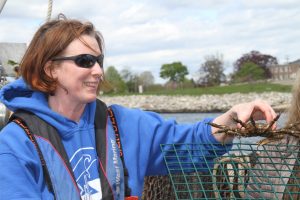
been my home meeting since I first attended as an undergraduate – I crept in and out of dimly lit rooms with fantastic images on the screens, and was shocked and elated when the people in my literature cited section turned out to be real live people walking through the corridors. Since that time, it has shaped my career as a scientist, educator, and science communicator. I am honored to serve as SICB’s first Communications Editor, and I want to make sure that SICB remains an inspiring, supportive home for all scientists – particularly those who are early career or coming from diverse communities.
This is a new position within SICB leadership. I’ll be working hard to keep SICB members informed, to make it easier to navigate SICB communications, and to develop a communications strategy to help SICB strengthen its connections with current members and reach new audiences. I’m particularly excited to be working with Lou Burnett, a fantastic committee of SICB members, and our partners at Knockmedia to design a new website for SICB! Stay tuned for more information on this long-overdue project.
If anyone reading this is on the fence about #SICB2021, come to the meeting! It is going to be the highlight of an otherwise dark and difficult year for so many of us. In addition to all the fantastic science and networking opportunities, it will be a chance for us to share and talk about the challenges we have faced as scientists in 2020, and come up with ways to support each other in 2021.
Message from the SICB Website Redesign Committee
New SICB Website Coming Soon! The springtime will bring some hope of relief from the COVID-19 pandemic and a fresh new look for SICB’s website. The SICB website is rich in content and was last overhauled in 2007. The redesign process started two years ago with a committee of SICB members giving their thoughts and ideas for what makes an effective website for an organization such as SICB. Since that time, the website has continued to evolve to serve the membership of SICB.

During the summer of 2020, SICB contracted with KnockMedia to design a new look for the website that is better organized, easier to access, and friendly to mobile devices. A new group of individuals selected from representative SICB committees and the leadership of SICB is working with KnockMedia to bring about these significant changes.
We are thankful to the members of the original SICB web committee named here: Lou Burnett, SICB Past President; Alice Gibb, SICB Secretary ; Heide Rohland, BAI; Ruedi Birenheide, SICB Webmaster; Thom Sanger, Public Affairs Committee; Karen Burnett, Development Committee; Bram Lutton, Educational Council; Brian Tsukimura, Broadening Participation Committee; Marianne Porter, Membership Committee ; Ariel Kahrl, Student Postdoctoral Affairs Committee; and Suzanne Austin, Student Postdoctoral Affairs Committee.
A new group will take the redesign across the finish line in 2021: Noah Bressman, Lou Burnett, Jill Drupa, Molly Jacobs, Michele Johnson, Gabe Rivera, Adam Summers, and Susan Williams
We thank everyone involved for their efforts and constructive feedback!
Message from the Program Officer
Jake Socha, Program.Officer@SICB.org

As with every other aspect of life, the COVID crisis has forced us to improvise, and we have been working on #SICB2021 since March. The initial idea, obviously scrapped by circumstance, was to hold a hybrid conference, with an online portion augmented by an in-person experience. Recently, we decided on an online conference vendor, enabling us to blaze forward with an all-virtual conference. Although there is no way to fully replicate the in-person experience, we see a silver lining—the virtual nature of this conference is an opportunity to increase access and equitability. With content available online throughout the months of January and February (two months of “SICB season”!), folks from around the world will have an opportunity to experience our integrative organismal science and connect personally with presenters and attendees. There are other advantages as well. In a ‘normal’ year, it’s almost impossible to catch all the presentations of interest, because so many things are going on concurrently. This year, not only will you not miss a thing, you can binge on-demand at your leisure, on days of your choosing, even in your pajamas with a bowl of ice cream. And think of the hassles you won’t have to deal with: Flu? Missing luggage? Child care? (Ok, maybe that last one is worse now — we feel for you, parents!)
We currently have 1,701 presentations. In normal times, we program about the same number of contributed talks and posters, but this year talks outweigh posters by 3 to 1 (1,162 to 397, to be exact). To give presenters flexibility, we are offering formats of either 6-minute or 12-minute talks. In addition to pre-recorded video for talks and PDF files for posters, we hope to offer the ability to upload supplemental files. Specific guidance on how to compose talks and posters for the online format will be provided on the SICB website sometime in November, which will help people prepare for the required upload in December (exact date TBD). We are also excited about the online commenting feature, which will enable attendees to provide input and ask questions, and for presenters to respond, throughout the SICB season.
You might have noticed a new, late-breaking abstract submission window that was open until October 28. We decided to accept additional abstracts not because of low numbers, but because we wanted to give folks who might have missed the first deadline, for any number of reasons, a second chance to submit. This second submission is a one-time thing, just for this year. Even if you are not presenting, spread the word and invite folks to attend SICB — the funding and travel-related barriers of a normal conference are much lower this year.
Many people have been asking about the schedule. Here’s the general layout. We’ll kick off the meeting on January 3 in an exciting way with the Best Student Presentation competition sessions, to give our students the front-row honor they deserve. All contributed talks and posters will also be released, available on-demand through the end of February. From January 4 to 7, we’ll have only symposia, plenaries, and networking opportunities, showcasing these events. This year’s lineup symposia promises something for everyone, with a diverse range of topics including social communication, canine science (dogs!), light pollution, and comparative studies of manakins, a fascinating group of birds. Check out the full list of the 12 symposia here. All else will occur after the 7th—workshops, division business meetings, socials, and sundry. In February, we’ll have live Zoom discussions for each contributed talk and poster session, to enable you to interact directly with presenters about their science. We will end February with two special sessions for evolutionary biologist George Gilchrist and botanist Vicki Funk, whose lives, legacies, and memories we honor. Overall, we hope that this plan provides a balance of highlighting specific events while keeping interest and energy high, and helping to reduce screen fatigue and burnout. Stay tuned for the official program schedule to be posted online in the coming weeks—we will make specific details of timing available as they are finalized.
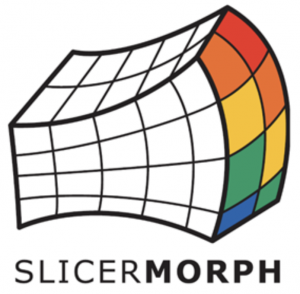
Lastly, let’s congratulate this year’s award winners: Roz Dakin for the Bartholomew Award, Michaela Hau for the Bern Award, Sara Hiebert Burch for the Morse Award, and Martha Muñoz for the Gans Award. We’re looking forward to seeing all of them at #SICB2021! We’re also excited about this year’s Moore Lecture, which will be given by social psychologist Claude Steele. You may recognize him from his popular book, “Whistling Vivaldi: How Stereotypes Affect Us and What We Can Do.”
Workshops are still being developed, but we have some on the books already. Among others, look forward to two (not just one!) Teaching and Learning X (TAL-X) workshops put on by the Ed Council, a SlicerMorph 3D analysis workshop led by Kelly Diamond, and a workshop put on by the Public Affairs Committee. Workshops will be run through the online platform using Zoom. If you have an idea for a workshop, please submit it using this form by the end of November.
Another difference (among so many) this year is that we will have session chairs for both talk and poster sessions. Our Session Chairs will help moderate posted comments to make sure that our written communications remain respectful and appropriate, and they will also help to organize the live discussion sessions. We thank you in advance for this major service!
Social events are still being planned. Janet Steven is leading the effort to come up with creative and fun ways for us to interact in the absence of actual presence. Thanks also to co-organizers Morgan Furze, Katherine Corn, and Caitlin Gabor. If you have ideas, we’re all ears. Please let us know using this short survey: https://forms.gle/jgk6bnHC49sncAoz5
The Program Committee has been meeting since May to put together a program that best suits everyone’s needs. It’s been an all-hands-on-deck situation, and we’ve received input from many people beyond the committee as well, from members to Executive Officers. We are truly grateful for all of your insight and help. The Program Committee includes myself, Thom Sanger (Program Officer-Elect), Kathleen Lynch (DAB), Janet Steven (DOB), Matt McHenry (DCB), Brian Walker (DCE), Kristi Montooth (DCPB), Matt Rockman (DEDB), Cynthia Downs (DEDE), Sarah Diamond (DEE), Karen Chan (DIZ), Jeff Riffell (DNNSB), Todd Oakley (DPCB), Mason Dean (DVM), Brian Tsukimura (AMS), and John Zardus (TCS). We were also joined by Misty Paig-Tran and James Murray from the Public Affairs Committee, who helped compile suggestions for presentations to include in SICB press releases, and by ICB Editor-in-Chief Ulrike Muller. We also thank Lori Strong and Stacey Haines for their invaluable work behind the scenes. Please make sure to thank these folks for their efforts in making this virtual annual meeting a success.
Message from the Treasurer
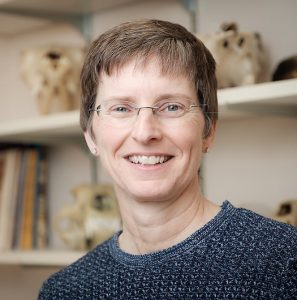
Miriam Ashley-Ross, Treasurer@SICB.org
2020 is challenging on many fronts, and SICB’s finances are no exception. Probably the question that is uppermost on everyone’s mind is, “Is SICB going to survive in this COVID/virtual meeting only environment?” The short answer is Yes! While the uncertainty is stressful, and for a long time we weren’t sure whether we were going to be virtual-only or have a hybrid/partially in-person meeting next January, as time has passed the picture has clarified, and the Executive Officers have been working hard to prepare for all eventualities and make sure that SICB can weather this storm.
Before I go into more detail about the financial picture for the virtual meeting, I want to set the stage by describing where we were before the chaos started. It’s hard to remember a time pre-COVID, but over half of our fiscal year 2020 (July 1, 2019 — June 30, 2020) encompassed normal times, including the January in-person meeting in Austin, TX. Most of our revenue and expenses happen surrounding the annual meeting, because the majority of members renew their membership at the same time that the register for the annual meeting. So from a financial standpoint, most of our data is in after February. There are of course a few items that come straggling in later, but we have a fairly accurate picture of where we’re going to stand at that time. Following the close of the fiscal year, an annual review of the Society’s finances is conducted. While that has not been completed yet, it is clear that the SICB leadership and BAI are fulfilling our aims of accurately predicting our expenses and revenue so that the Society remains (just barely) in the black. We try to set membership and annual meeting registration fees so that we break even, rather than overcharge the membership and build up assets through annual charges. The annual meeting is the biggest factor in our finances, and the 2020 Austin meeting was an unqualified success; it collected a total of $476,834 in revenue (larger than our projection of $444,700), while expenses were $423,417. During the Austin meeting, the Executive Committee set a FY2021 budget, which assumed that we would have an in-person meeting in Washington, DC. Meeting location matters — the figures from the Tampa meeting were $50,000+ less than for the San Francisco meeting, on both the revenue and expense sides. Burk and Associates, Inc. works very hard to get SICB good deals on meeting locations and venues. Nonetheless, due to increased costs associated with the meeting, the Executive Committee had to vote to increase membership dues by a modest amount to offset these.
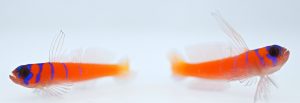
Fast-forward to Fall 2020, when it became clear that SICB was going to have to shift to an entirely virtual model for the January 2021 annual meeting. A number of decisions had to be made – how were we going to deliver the talks? How long should the talks be? Would we have posters? What sort of interactions were we going to have between presenters and audience, and for how long? We settled on the format that our Program Officer describes, and then the executive officers and BAI started shopping around for a company that could provide the platform. We also tried to make an educated guess as to how many meeting attendees we’d get. All of the decisions made affect the projected cost, and potential revenue, of the meeting. While it seems obvious that attending a virtual meeting is (and should be) less expensive than an in-person meeting, there are still very real costs associated with putting it on. We have tried to set registration fees at reasonable levels for what is being provided (2 months of access and interactions puts us on the most generous end of the virtual meeting spectrum), and to get SICB just into the black if we have typical numbers of attendees. At the same time, we understand that the research programs of many researchers (professors and students alike) have been drastically curtailed by COVID restrictions, and so have put in place a very forgiving cancellation policy. But we really hope that you’ll all attend, even if the research you’re presenting isn’t in as finished a form as you’d like! We are working hard to make this virtual meeting a dynamic and accessible event – it’s unavoidably going to be different than the usual, but we’re confident that you’ll find it a rewarding experience. I hope to be able to tell you next Spring that it was an unqualified success. Please attend and support your fellow SICB members, and the Society as a whole! —Respectfully submitted, Miriam Ashley-Ross, SICB Treasurer
Message from the Secretary (and Secretary-Elect)
Alice Gibb, Secretary@SICB.org and Michele Johnson, Secretary-Elect@SICB.org
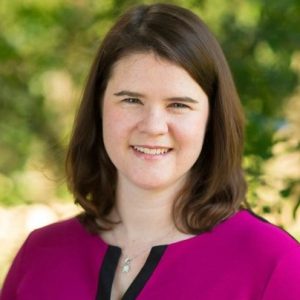
It’s time to reintroduce everyone to Michele Johnson, the current Secretary-Elect and the incoming SICB Secretary — as of January of 2021! She has already been doing much of the official SICB work related to bylaws and is ready to step in and take on the elections and newsletter communications in the upcoming year. Speaking of bylaws and elections, we have a few announcements to make.
First, SICB recently passed several bylaws changes to allow all members of the Society to vote in elections, allow Postdoctoral Members to hold office, rename the membership category for undergraduate and high school students, and remove limits on the duration of time a membership category may be held. In addition, these bylaw changes also eliminated the requirement that students be sponsored by a full member. Instead, when a student submits an abstract, they will be prompted to provide the email address of their research advisor, who will receive an alert that the abstract was submitted. Language has also been changed to allow ALL members (including student members) to present one poster and one oral presentation at a meeting. Speaking on behalf of the executive officers, we feel these changes will demonstrate our collective support for our student members and remove potential barriers to their success.
Second, the nominating committee for the spring 2021 elections has been formed. At the society-wide level, we are seeking candidates for Program-Officer Elect (term as Program-Officer Elect to begin January 2022) and Member at Large (term as Member at Large to begin January 2022). If you are an interested candidate, or you know someone who might be willing to run for election, please send this information to the chair of the society-wide nominating committee, former SICB Program Officer and SICB member par excellence, Susan Williams (chair.nominating@sicb.org). My own experience being an officer for SICB has been that it is both fun and fascinating, so I encourage other members to consider becoming involved in SICB leadership.
Message from the ICB Editor
Ulrike Müller, editor.icb@sicb.org
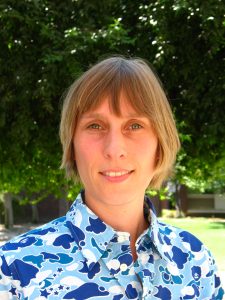
ICB collaborates with Jumpstart – Reintegrating Biology. Integrative and Comparative Biology is proud to announce its collaboration with Jumpstart – Reintegrating Biology. Last year, this NSF-funded initiative held townhall events across the US, which resulted in more than 60 vision papers available on the Jumpstart website (link: https://reintegratingbiology.org/vision-papers/). ICB is currently collaborating with the authors of those papers to develop these brief vision papers into Perspective papers for ICB. Our goal is to share with our community what biologists identified as the most interesting or compelling questions that might be tackled by integrating disparate sub-disciplines of biology. These manuscripts are planned to be published in the 2021 issue.
Call to Action for Equity and Inclusion. Integrative and Comparative Biology is grateful to its authors for their dedication and hard work to see their manuscripts through in these trying times. ICB would like to renew its call to action for equity and inclusion. We are grateful to our SICB members Janneke Schwaner and Brooke Flammang for picking up the torch and publishing a study in this year’s ICB entitled ‘Parenting Through Academia as a SICB Member’, based on a workshop plus survey among our SICB members (link: https://academic.oup.com/icb/article-abstract/60/3/549/5864029).
We would like to renew last year’s call to action for 2021. With COVID 19 negatively affecting the career trajectories and productivity of many of us, ICB is looking for ways to support its authors. We invite manuscripts, such as Perspectives and Reviews. We also invite Policy papers that align with ICB’s call to action. We are interested in Op-Eds, Perspectives, Reviews, and original research manuscripts that address or that arise from the impact of COVID 19 and BLM on our community. We welcome Op-Eds that share with us your experiences and perspectives. We welcome all thoughts and suggestions on how we can increase equity and inclusion, and on how we can better support our authors. Please don’t hesitate to contact Ulrike Müller or any ICB editor with ideas, suggestions, and concerns. And if you have the time, interest, and energy, please consider joining us in forming a task force of equity and inclusion. You can express your interest by completing the Google form (link: https://docs.google.com/forms/d/e/1FAIpQLSekqA64gFC-z6CIMEeqTh5d8mUJiiHZfhUNyPR5OVnbZVXvNQ/viewform?usp=pp_url)
Message from the IOB Editor
A.P. Summers, editor.iob@sicb.org
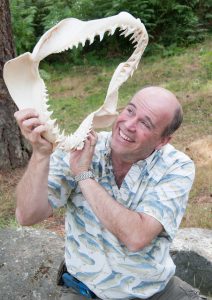
Our new open access journal continues to grow, with representation from every SICB division. We are recruiting new Associate Editors and Outreach Associates, so please get in touch if you are interested in either of these roles. We are particularly interested in more manuscripts from the new Division of Botany. Send us your manuscripts, every one helps support the society. When your manuscript is published we do our best to make sure it is well launched into the world of social and conventional media. The average AltMetric impact factor for IOB is higher than any other pure biology journal! In our first year and a half we have more than a dozen papers with AltMetric scores above 100 and one has been featured as a breakout story on the AltMetric site. The Outreach Associates will expertly craft a blog entry to support the publication of your article, broadening the awareness of your work in both the scientific community and among the general public. Abstracts translated into as many languages as we (and you) can find are another way to increase the worldwide appreciation of your science. To ensure Integrative Organismal Biology continues to grow we need you to keep sending us your great manuscripts!
Message from the Broadening Participation Committee
Rita Mehta, Chair

The goal of the Broadening Participation (BP) committee is to increase the equity, inclusion, and diversity of SICB and the field of integrative biology for people at all career stages, in terms of race, ethnicity, gender, sexual orientation, ability/disability, and socioeconomic background. The BP committee works to increase the diversity of SICB by providing travel awards to help underrepresented attendees defray the costs of attending the annual meeting, hosting workshops, seminars, supporting a mentor-mentee program, and hosting a social at the annual meeting.
With even greater purpose, over the summer and into the Fall, the Broadening Participation committee has been collectively working on initiatives and ideas that we hope will result in greater equity, inclusivity, and broader diversity in SICB. Our current committee members recognized that we needed initiatives that also acknowledged and celebrated members who have been making concerted efforts to break down systemic institutional barriers that prohibit talented and motivated students from entering, staying, and thriving in STEM disciplines. With our efforts we hope to improve the annual conference and the society at large. Some initiatives that we continue to develop can be implemented soon while others are long term. As the Chair, I truly thank my committee members for their unwavering support and time. I also thank the Executive Committee for their support on these initiatives as they were busy planning a virtual annual meeting.
One major accomplishment of the BP Committee was redesigning the application for the BP Travel Awards. This upcoming year, these awards will be known as “Professional Development Awards” to better fit our virtual SICB meeting in 2021. The application now contains prompts that will make it easier for applicants to complete and for reviewers to evaluate, and it no longer requires letters of recommendation. This year, the awards will be for up to $300 dollars, and in the application, we request that applicants make the case for how the funds will enable them to attend and facilitate their participation in the virtual meeting. We expect the new application will help the funds reach a wider range of SICB attendees who are making important contributions to the diversity of SICB’s meetings. The application for the Professional Development Awards can be accessed here or check the BP webpage on the SICB website (via the Committees tab).
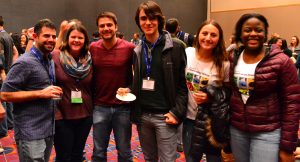
The Mentor-Mentee Program remains one of our most popular programs and often results in long-lasting connections between mentors and mentees. In response to SICB 2021’s virtual platform, we are modifying the Mentor-Mentee Program to extend beyond the typical January 3-7 meeting period. We hope the virtual platform and extended program time for SICB 2021 will make people more enthusiastic about participating in the program. We tailored the program’s registration survey to gather other types of information, such as time zone, that will help us minimize logistical barriers for each mentor-mentee pairing. Participating in the BP mentorship program as a mentor is one way you can show your support and actively make our society more equitable and inclusive. Participating in the BP mentorship program as a mentee can help you get more out of the annual meeting experience and facilitate enduring research and mentorship connections. To participate, please just check the box expressing your interest on our SICB registration page and I will send you the formal survey used for the match. Please make sure you register for the annual meeting preferably by Sunday November 29th as the survey for the Mentor-Mentee program is due Monday, November 30th at midnight, EST. This provides BP with the appropriate time to make the matches and notify our participants.
In another new initiative, the BP Committee created a comprehensive demographics survey to quantify the current diversity of attendees at the annual SICB meeting. The survey was designed to collect demographic information that has traditionally been left off previous demographics surveys but that is central to describing the identities of SICB attendees. We will use these data to plan future workshops and other resources that reflect the needs and intersectionality of our societal membership. An important component of this new survey is the transparency in how the data are collected, stored, and used: data will be collected without any personally identifiable information (e.g., name, institution), maintained in a secure database by the BP chair, and used only for internal program evaluation. We hope that this transparency will increase the survey’s response rates, which will improve our ability to serve the diverse groups at SICB meetings.
If you have any questions or are interested in helping or joining BP, please contact the Chair of the committee (rmehta2@ucsc.edu). All SICB members are welcome and encouraged to attend BP events and participate in BP programming during the annual meeting. Please see http://www.sicb.org/meetings/bp/ for further information about our programs.
Message from the Student-Postdoctoral Affairs Committee
John R. Hutchinson, Chair of SPDAC, chair.spdac@sicb.org
SPDAC has continued with plans for SICB2021. These include: (1) another (virtual) “booth” with new “How-
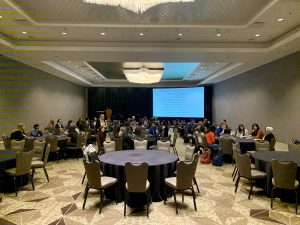
To” Brochures for all members/attendees (also to be put on the website at https://sicb.burkclients.com/resources/studentpostdoc.php3; bottom of page) and some kind of chat rooms for discussions with our Reps, as well as our usual posters with tips, and maybe a “jobs board” and (2) another (virtual) roundtable workshop for students and postdocs to discuss major issues with expert panelists, themed “Transferable skills in academia and non-academia”. We are aiming for diverse experts from a broad range of backgrounds and skills, to serve our members. Current thinking is that we will start with a 30min panel (all experts) discussion about transferable skills in general, then expert-led 60min focused roundtable sessions; this will depend on SICB’s virtual platform.
We remain active at https://twitter.com/SICB_SPDAC; less so at https://www.facebook.com/sicbspdac. We welcome ideas on how we (me as Chair and your 12 divisional reps– see SICB link above for names/contact info) can best serve you, whether at SICB2021 or other times.
Message from the Education Council
Lisa Whitenack, Educational Council Chair, Chair.EdCouncil@sicb.org

The Educational Council has been hard at work supporting SICB members in this time of pandemic pedagogy. We continue to provide COVID-19 teaching support through maintaining databases for resources for online biology instruction, online guest lecturers, and SICB’s Research and Education Resources library. We are also sorting through the almost 50 responses to our teaching circle interest form and are finalizing the scheduling of the first meeting for each group.
At the same time, the Ed Council is preparing for the 2021 annual meeting. We are supporting a great symposium “Biology beyond the classroom: Experiential learning through authentic research, design, and community engagement.” We have two great TAL-X workshops in the works for you: one on integrative creative writing into your courses (led by Chris Gillen) and one on “Biomaking” and community partnership (led by Ali Hansen, Corrine Takara, and BioJam teens). We’ve also selected our Moore Lecturer and are working on those details. Stay tuned for more information on all of these exciting developments!
Finally, it is my pleasure to announce this year’s winner of the M. Patricia Morse Award for Excellence and Innovation in Science Education, Dr. Sara Hiebert Burch of Swarthmore College. Dr. Hiebert Burch’s nominators write “Sara’s excellence as an educator stems from how she thoroughly and intentionally embraced the process of scientific inquiry and application of educational research within her teaching practice. Sara has published and presented much of this teaching work for the benefit of science educators beyond her home institution. Simply put, she is an exemplary teacher-scholar.” Congratulations, Dr. Hiebert Burch!
